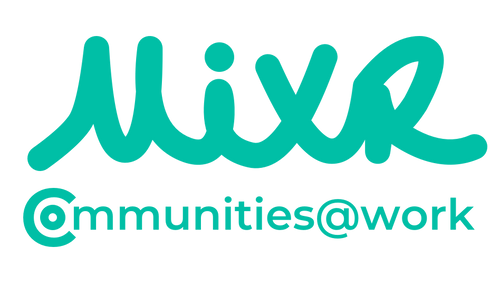
We’re in the midst of a significant disruption. It seems we all know someone who has left their job or changed career paths in the last few months. If you’re an employer, you don’t need us to convince you of the ongoing trend of people voluntarily leaving their jobs. Experts are calling it: “The Great Resignation.” Here are five things you need to know.
The pandemic as an accelerator
Texas A&M’s Anthony Koltz first coined the term “The Great Resignation” back in 2019. He notes that the rate of resignation has actually been rising for a while. However, with the start of the pandemic in 2020, resignations dropped. According to Koltz, plenty of employees still wanted to quit their jobs, but few would quit voluntarily amidst so much uncertainty. This led to a backlog of people who’d enact their plans to quit as soon as the economy improved. Now, the Great Resignation is in full force. According to the U.S. Department of Labor, during the months of April, May and June 2021, a total of 11.5 million workers left their jobs. That’s not all, a Microsoft study found that 41% of employees are considering quitting, and Gallup found that 48% are actively searching for new opportunities.
It’s about more than flexibility
In an effort to hold onto their people, many managers are allowing their employees to work when and where they want - even those who were reluctant to do so. However, overcoming the Great Resignation goes far beyond work from home rules. Employees are showing signs of deeper concerns. Among these concerns: burnout and lack of sense of purpose, which have been brewing since long before the pandemic. The human aspects of work, such as how employees are actually feeling, are more critical now than ever. The key to getting people to stay lies in Employee Experience. Research shows that when employees have a positive workplace experience, they show greater sense of belonging, which comes with a 50% drop in turnover risk. Gallup data also shows that this disruption is not an industry, role or pay issues, it’s a workplace issue. The highest quit rate is among those not engaged or actively disengaged - some are even calling it “The Great Discontent.”
Gen Z has other plans
So we’ve all seen the number: 41% of employees are considering quitting their jobs. Did you know that that number jumps to 54% for those aged 18-24? Gen Z has a whole new set of social expectations: they’re at the center of widespread movements such as Black Lives Matter and the climate catastrophe, amongst others. Experts believe that due to these lived experiences, Gen Z workers exceedingly expect both meaning and purpose at work. Based on a new Adobe survey, Gen Z is the least satisfied generation at work, with only 56% satisfied with work/life balance and 59% with their job overall. Younger workers are also especially likely to switch jobs for more control over their schedule (62%) or the option to work remotely (63%). These figures present serious risks to businesses, and employers should be careful to not overlook the changing expectations of these younger generations.
Major implications for DEI efforts
Arthur Woods, Co-Founder of Mathison and valued MixR partner, writes for Harvard Business Review that this movement has major implications for companies’ diversity efforts. “Talent teams that were already facing capacity issues are now struggling to fill gaps with qualified and available candidates, much less ones from diverse communities. In a climate where underrepresented job seekers are in high demand and many will be part of the cadre leaving their jobs in the next year, organizations face a major risk of seeing their diversity numbers get worse. To avoid sliding backward at this critical juncture, organizations need to break traditional conventions and fundamentally shift their approaches to diversity hiring.”
So, how to attract and retain talent?
Employees have had plenty of time and space to think about what really matters to them recently. They’re fatigued and burnt out from the pandemic, they’ve adjusted to new working styles, and they’ve completely shifted their perspectives. Now, employers must figure out what it means to be a good place to work. They’re finding ways to bring meaning back to work - from linking work to social purposes employees care about, to providing both personal and professional development opportunities. As we see it, this disruption is an extraordinary opportunity for organizations to transform their cultures for the better. Change will happen through your people - if you invest in them long-term, and empower them, they will invest back into your organization. Fair pay alone won’t keep them around, but building a culture of trust and belonging, where employees feel valued and seen, is key to creating the type of employee experience that will prevent them from searching for their next opportunity.
If you’re interested in learning more about The Great Resignation, check out our CEO, Cecile Moulard, recent column on the topic. She makes the case for trust & belonging at work and how leaders should approach the issue. In the meantime, if you’re interested in learning more about how MixR can become a part of your turnover reduction strategy, let’s chat.







